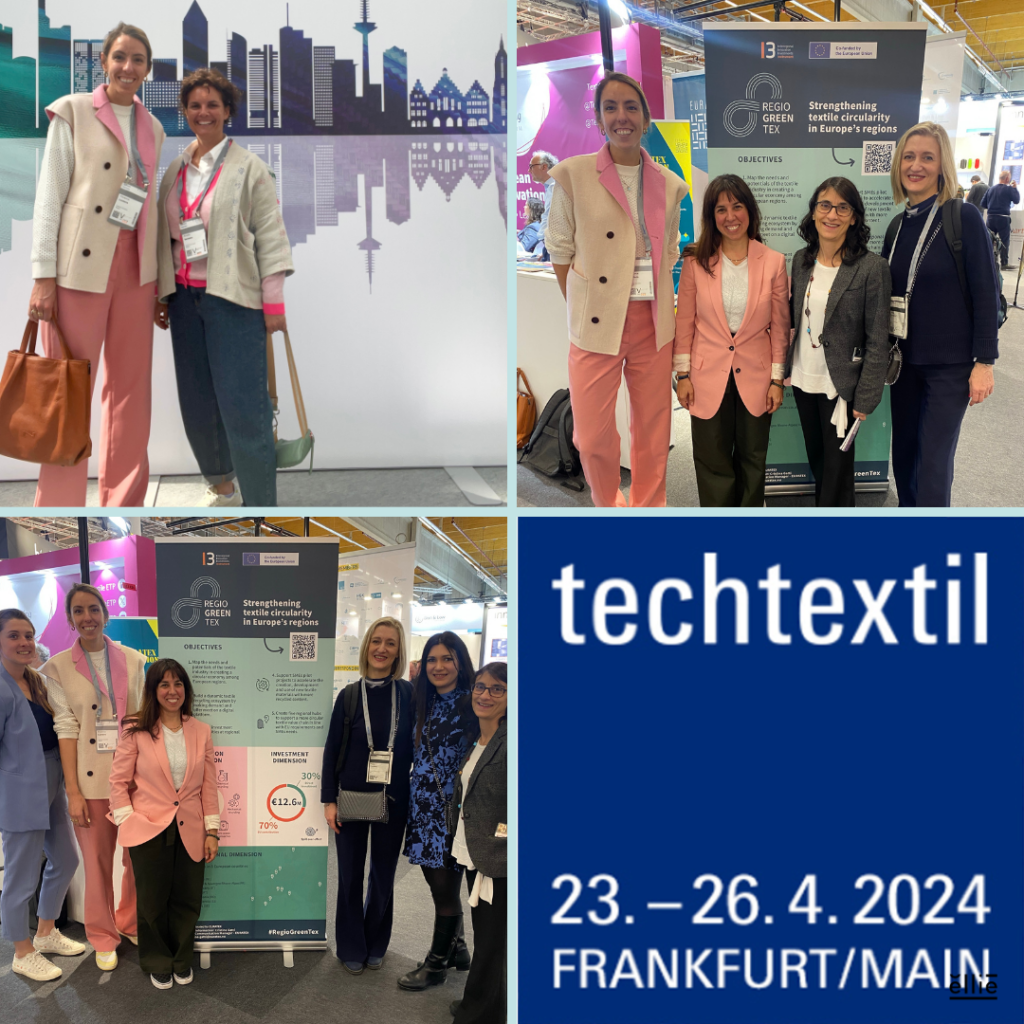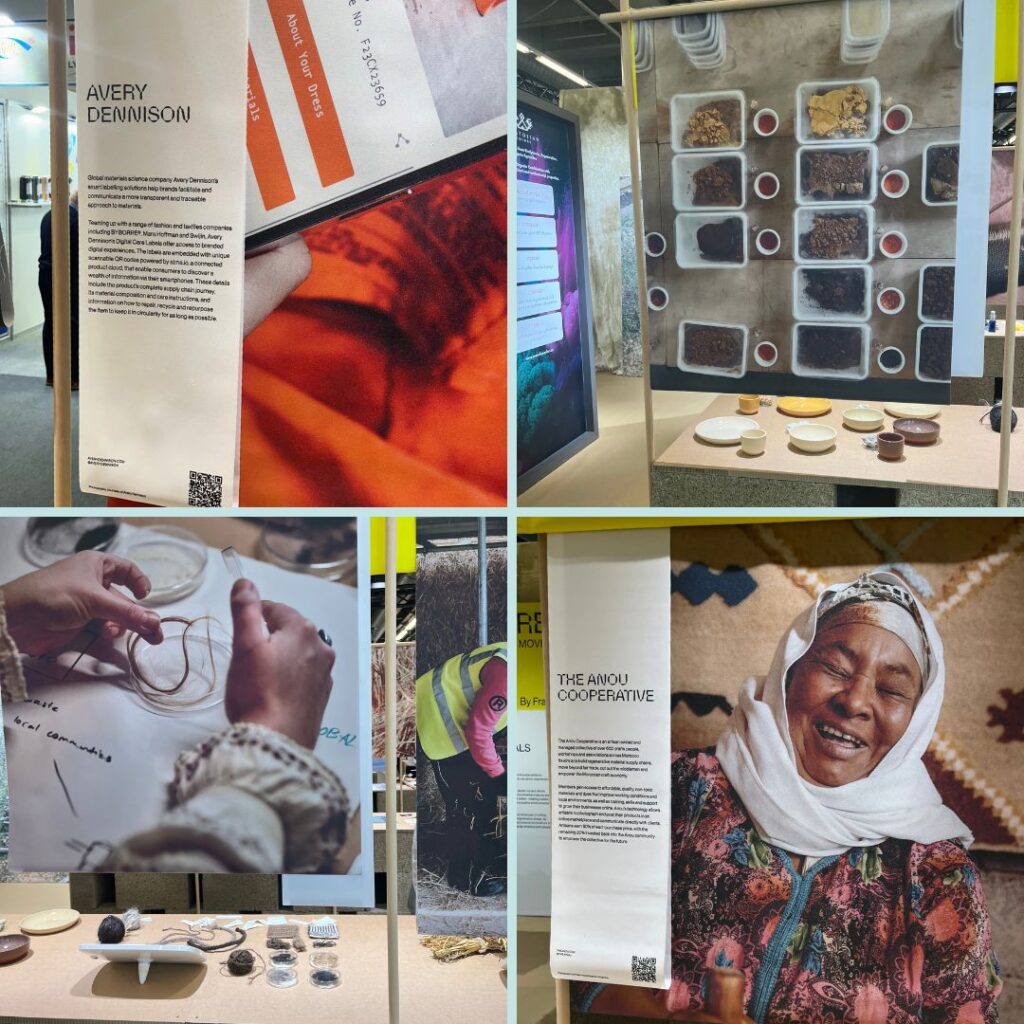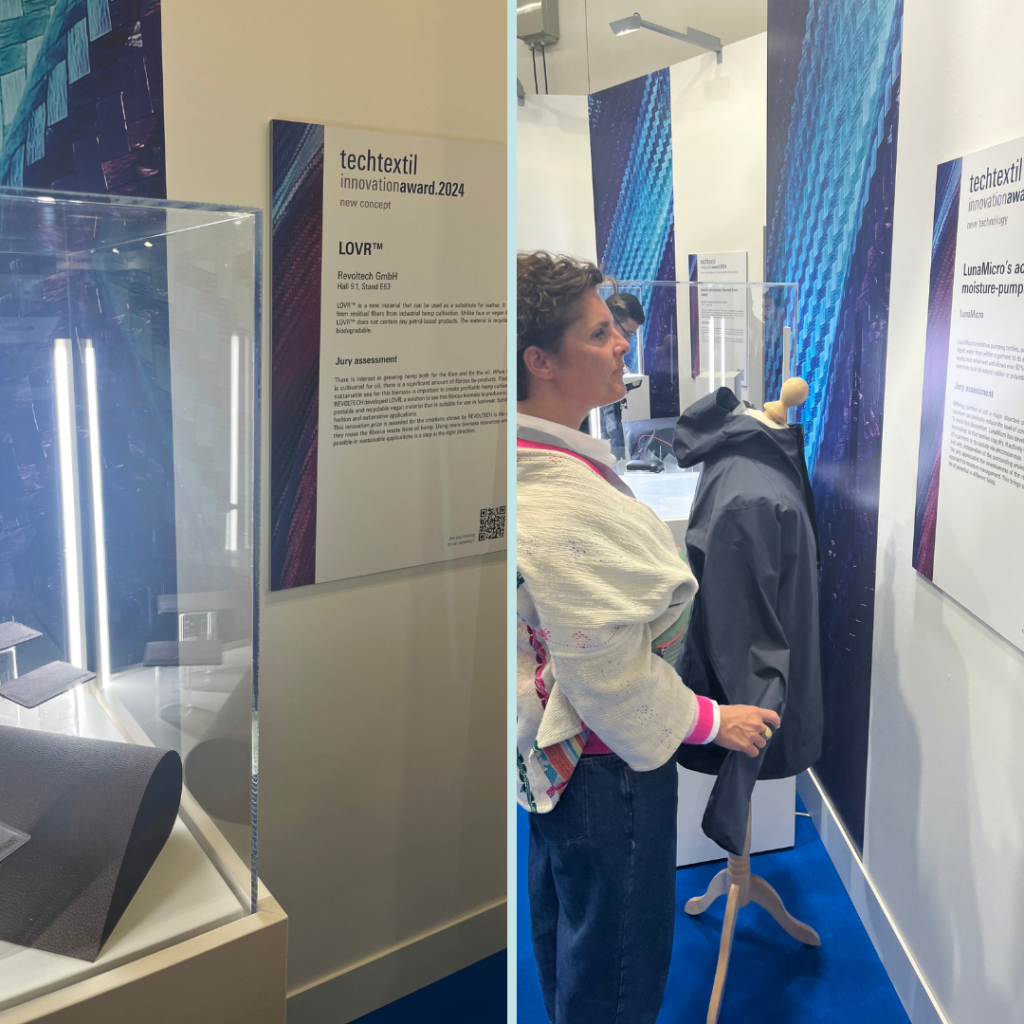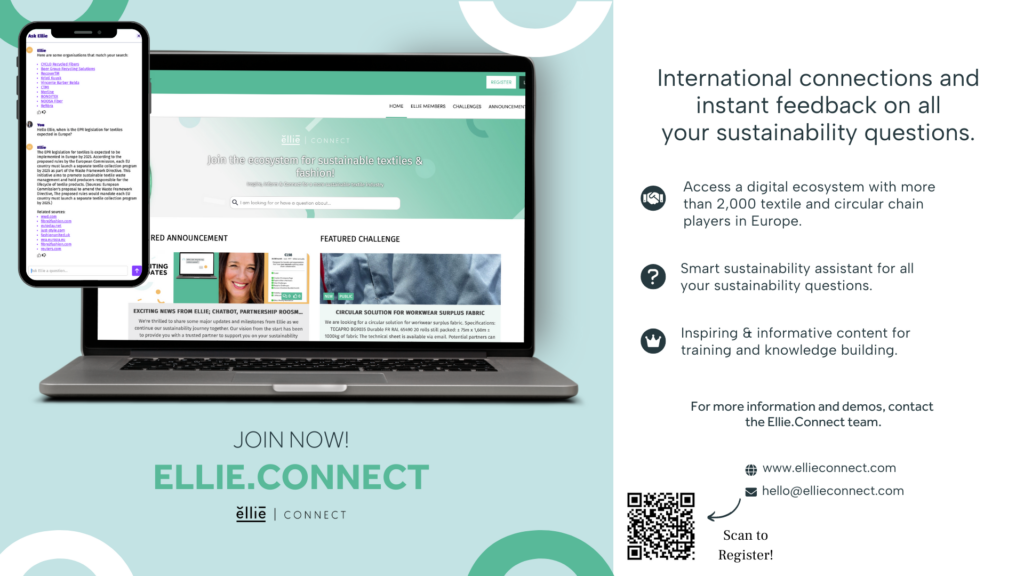Techtextil & Texprocess 2024 are not your traditional sales fairs. The presence of all players in the value chain, from producers to software providers, research institutions to federations, makes this fair unique and ensures it serves as a hub for innovation and collaboration, showcasing an array of groundbreaking developments and industry trends.
The Ellie team was also present in Frankfurt. Our visit to Techtextil had several good reasons. Firstly, we announced the collaboration between Ellie.Connect and the Belgian federation of the textile, wood and furniture industry, Fedustria. Secondly, we took the opportunity to engage with a lot of (partner) companies, including those at the well-curated Belgian pavilion. Thirdly, acting as your eyes and ears, we aimed to experience firsthand the prevailing atmosphere in this sector of the textile industry.

Here you can find an overview of our main findings and insights on what is happening in the technical textile industry in Europe.
1. Innovation in Materials with a Focus on the Social Impact of Textile Production:
The fair showcased a variety of innovative materials, particularly focusing on natural fibers, bio-based, and biodegradable materials. The Nature Performance Area highlighted not only alternative, recyclable, and sustainable materials (such as human hair!) with future-proof functional properties but also emphasized how textile production can enrich local communities.

2. Collaboration as a Solution :
Techtextil serves as a hub for discovering new solutions and fostering partnerships. The presence of the entire supply chain and various stakeholders facilitates collaboration and drives innovation forward. In talking to different players in the industry, we noticed that the balance between feedstock supply and market demand remains a challenging aspect. It is at events like these that partnerships can be forged, which are crucial to finding solutions for such challenges.
3. Industry’s dynamism and resilience:
From new materials to smart manufacturing technologies, the exhibition highlighted the industry’s dynamism. Innovations catering to specific functionalities and cost-efficiency, alongside sustainability and digitalization, were prominently featured. It was hopeful to
ascertain that despite challenges in certain segments and recent crises, companies keep on investing in innovation and partnerships
4. Navigating Through Regulatory Changes:
The ever-changing EU legislative environment presents hurdles, especially concerning chemical regulations and environmental reporting requirements. Companies have to adjust to these shifting regulatory landscapes, balancing compliance with cost-effective measures. The profound expertise within the European technical textile ecosystem represent a valuable economic resource for Europe. It is crucial to avoid jeopardizing this asset through misguided regulation.
5. Focus on Sustainability and Circular Economy:
Sustainability and circularity emerged as key areas of exploration. Companies are actively seeking solutions across the supply chain, despite challenges such as complex material mixes and immature recycling technologies. During conversations with various recycling partners, it became clear that post-consumer recycling is becoming increasingly attractive, despite the many challenges it entails. Recycling companies are increasingly considering the possibilities of recycling post-consumer waste, an evolution that we can only applaud.
6. Digitalization’s Transformative Power:
Throughout the entire fair, the importance of digitalization in the textile industry was emphasized. Digitalization and automation offer solutions for increased flexibility, sustainability, quality, and innovation. They ensure an overall boost in efficiency, addressing industry needs for faster time-to-market and process optimization. A notable example was the presentation by Citeve (Technological Centre for the Textile and Clothing Industries of Portugal) on the STVgoDigital-PPS1 project, which has developed a comprehensive traceability strategy for textile and clothing products (DPP), aiming to promote transparency and accountability. The intention is to quickly test this version of their DPP in practice now.
7. Leveraging Technical Expertise for Competitiveness:
The technical textile sector leverages customer intimacy, technical expertise, and innovation to maintain competitiveness. Sustained innovation is essential to preserve Europe’s leadership position in the global market.

8. Innovation Forum:
At this year’s Innovation Awards 15 winners in eight categories were honored for pioneering research and new products, processes, or technologies. Among the notable winners were innovations such as self-cooling textiles, an intelligent textile pump, vegan leather made from hemp waste, and a machine for effective, chemical-free garment cleaning. These awards recognize significant advancements in the textile industry, reflecting important trends and advancements worldwide.
Overall, Techtextil & Texprocess 2024 reflect the resilience of an industry navigating through several challenges. Despite the current difficult economic climate, the substantial turnout at the event signals a careful collective optimism. It’s nice to witness the industry’s unwavering commitment to seeking innovative solutions to its challenges, ensuring a dynamic and forward-looking future.
Looking for more industry insights? Join the Ellie.Connect platform today!


